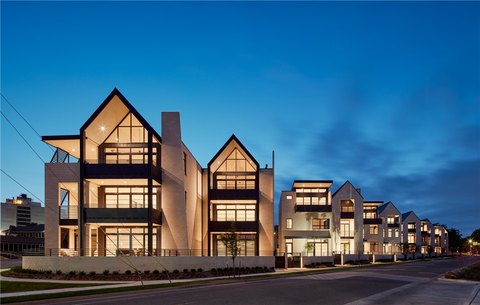One of the most important variables affecting a property’s value in real estate is its location. For good cause, the adage “location, location, location” has been overused: a property’s location can have a big impact on its value, desirability, and potential for long-term investment. This article explains how location affects a property’s value and offers some tips for buying or selling a house.
Close to Amenities
Higher valuations are typically seen for properties that are close to hospitals, shopping malls, schools, and public transportation. Convenience is a top priority for buyers, which raises the value of properties in well-served neighborhoods. A property’s desirability can also be increased by its proximity to dining options, parks, and recreational areas, particularly for young professionals and families.
Community Caliber
The overall standard of living in the community has a big impact on property value. Buyers and investors are more drawn to neighborhoods that are safe, orderly, well-maintained, and have low crime rates. Furthermore, communities with robust education systems, vibrant local governments, and a strong feeling of community tend to fetch higher prices. A neighborhood’s reputation can influence demand and raise property values.
Economic and Employment Opportunities
Locations with a thriving economy and ample employment opportunities are more likely to see property values rise. Areas near business hubs, tech parks, and commercial centers attract professionals who want to live close to work, leading to increased demand and higher property prices. Conversely, regions with high unemployment rates or declining industries may experience stagnant or falling property values.
Transportation Accessible
An ease of access to major thoroughfares, mass transit, and airports can add substantial value to a home. Reduced travel times are prioritized by commuters, increasing the value of houses in well-connected localities. Proximity to recent infrastructure investments, such expressways or metro stations, can also cause property values to soar as cities grow.
Prospects for Future Development
Property values in an area may benefit from possible future development. Locations with impending projects, such as new schools, shopping malls, or transit upgrades, are frequently sought after by investors and buyers. Since these developments offer improved amenities and services, demand may rise and property values may eventually rise as a result.
Aesthetic and environmental factors
Property value can also be influenced by a location’s natural surroundings and aesthetic attractiveness. Properties with beachfront access, beautiful views, or close proximity to green areas frequently fetch higher prices. Furthermore, places with low noise pollution, nice climate, and decent air quality attract more purchasers, which raises the value of real estate in those areas.
Trends in the Market and Gentrification
Property values can be greatly impacted by gentrification and real estate market developments. Property values can climb quickly in specific communities as they gain popularity or undergo renovation. Areas on the verge of gentrification are frequently sought after by buyers seeking long-term investment possibilities since property values there are predicted to rise as the community improves.
In summary
Property value is heavily influenced by location, which affects everything from desirability to long-term investment returns. Knowing the effects of location can help you make a better informed choice when purchasing a home, whether you’re doing so as an investment or for habitation. You can select a property that not only fits your needs but also has a high potential for value appreciation by taking into account variables like amenities, community quality, employment possibilities, and future development.

